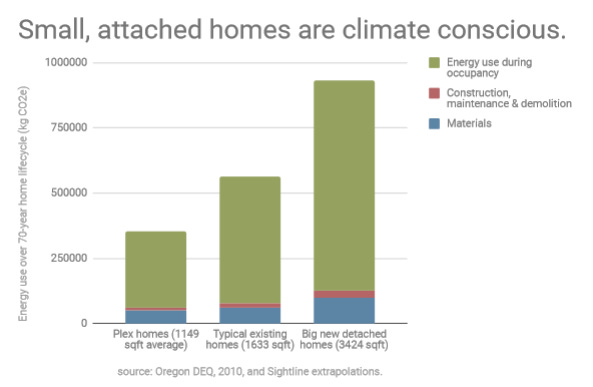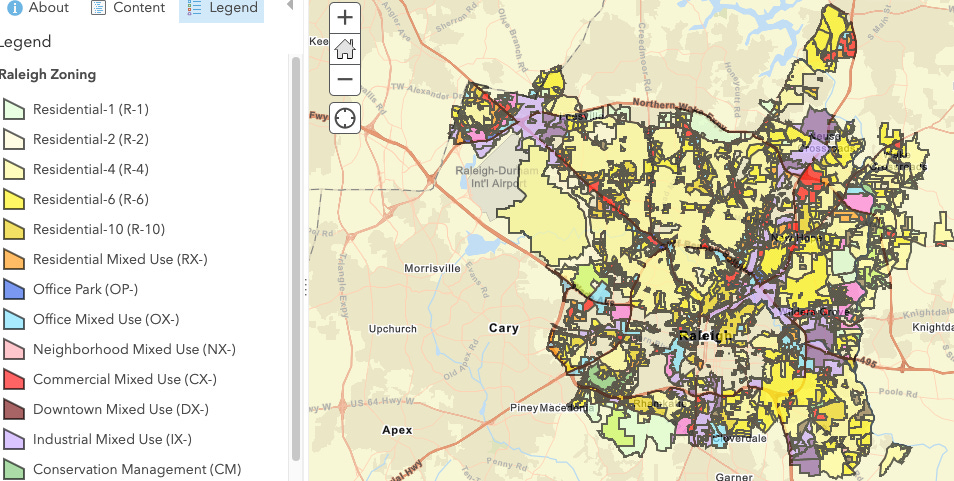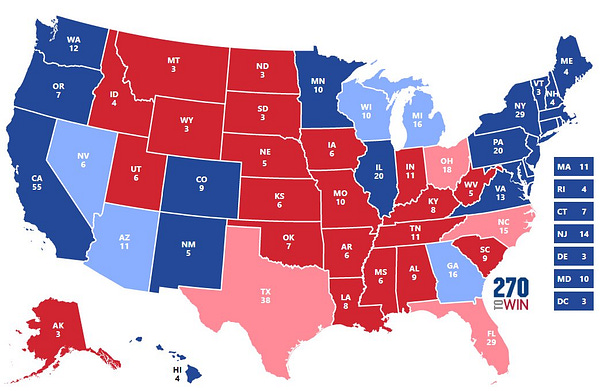Hannah-Jones to UNC: Thanks But No Thanks
Wed., July 7, 2021: She’s headed to Howard, joined by Ta-Nehisi Coates + Raleigh’s big missing-middle housing ordinance
+2 DEEP DIVES
1. Hannah-Jones Ditches UNC, Chooses Howard
Not that it matters, really, but I called it: Nikole Hannah-Jones—MacArthur genius and winner of the Pulitzer, Polk, Peabody, and National Magazine awards—rejected the UNC Board of Trustees’ too-little-too-late tenure offer, announcing on CBS This Morning Tuesday that she’ll join Howard University as the Knight Chair in race and journalism and found the university’s new Center for Journalism and Democracy.
Howard had no problem granting her tenure.
She’ll be joined by writer-in-residence Ta-Nehisi Coates—and a bunch of money.
“Both appointments are supported by nearly $20 million from an anonymous donor, as well as the Knight Foundation, the John D. and Catherine T. MacArthur Foundation, and the Ford Foundation, officials said.”
“The twin hires represent an extraordinary coup for Howard. Coates and Hannah-Jones are highly regarded writers who have each produced high-impact work on urgent questions about race in America.” (WaPo)
In an interview with NC Policy Watch’s Joe Killian, who has owned this story, Hannah-Jones laid out her reasoning.
“Literally the day the story broke, I started hearing from universities,” Hannah-Jones said. “At one school the dean said to me, ‘We’ll offer you tenure and respect.’”
Hannah-Jones felt torn. She hadn’t sought the UNC job; she was recruited for it. She had a good relationship with the dean of the journalism school, Susan King. The Ida B. Wells Society for Investigative Journalism, which Hannah-Jones co-founded, is headquartered at Chapel Hill.
“I still wanted to come to Carolina,” Hannah-Jones said. “It’s my alma mater. I love this place.”
Since May, when Policy Watch broke the story of the UNC-Chapel Hill Board of Trustees denying Hannah-Jones a vote on tenure, faculty, staff, students, and alumni have rallied around her. Major funding partners publicly called on the school to grant her tenure. The Knight Foundation, which endows the professorship for which Hannah-Jones was recruited, also pushed for the school to hire her with tenure—a status that has been afforded to all previous Knight Chairs at the school.
But as news stories revealed the extent of pressure from conservatives, including Arkansas media magnate and UNC mega-donor Walter Hussman, Hannah-Jones said returning to her alma mater to teach seemed less logical.
“Once the news broke and I started to see the extent of the political interference, particularly the reporting on Walter Hussman, it became really clear to me that I just could not work at a school named after Walter Hussman,” Hannah-Jones said. “To be a person who has stood for what I stand for and have any integrity whatsoever, I just couldn’t see how I could do that.” …
That didn’t have to be the case, Hannah-Jones said.
“Had there been some political courage on behalf of the leadership of the university, that also could have made my decision different,” she said.
Instead, [Chancellor Kevin] Guskiewicz and other campus-level leaders were virtually silent throughout the controversy.
“I understand that [the board of trustees] has a different vision for the university,” Hannah-Jones said. “And they’re political appointees, so I understand that. But the silence from administration, the unwillingness to come forward and say, ‘She deserved tenure at this university and to be treated like everyone else,’ the lack of transparency—I still don’t know what happened and I’ve had one-on-one conversations with the chancellor.”
Killian’s Twitter thread comparing his interviews with Hussman—the UNC megadonor who tried to derail Hannah-Jones’s appointment—and Hannah-Jones is worth reading. He concludes with this point:
“In our interview, Hannah-Jones made it clear: The silence and lack of transparency from school leadership—particularly Guskiewicz—made taking another offer inevitable. They could have prevented this, had they put in the work.”
In her own (long) statement, Hannah-Jones outlined how Dean Susan King recruited her, how the Board of Trustees declined to take up her tenure application, how the same conservative activists who derailed her tenure then accused UNC of subverting the BOT by hiring her anyway, how the whole episode blew up after that.
I cannot imagine working at and advancing a school named for a man who lobbied against me, who used his wealth to influence the hires and ideology of the journalism school, who ignored my 20 years of journalism experience, all of my credentials, all of my work, because he believed that a project that centered Black Americans equaled the denigration of white Americans. Nor can I work at an institution whose leadership permitted this conduct and has done nothing to disavow it.
How could I believe I’d be able to exert academic freedom with the school’s largest donor so willing to disparage me publicly and attempt to pull the strings behind the scenes? Why would I want to teach at a university whose top leadership chose to remain silent, to refuse transparency, to fail to publicly advocate that I be treated like every other Knight Chair before me? Or for a university overseen by a board that would so callously put politics over what is best for the university that we all love? These times demand courage, and those who have held the most power in this situation have exhibited the least of it.
There are layers to unpack.
Her indictment of Walter Hussman Jr. as a man who believes “a project that centered Black Americans equaled the denigration of white Americans” is both blunt and accurate.
Taken to its logical conclusion, Hussman’s old-school vision of “view from nowhere” objectivity—which still pervades newsrooms and journalism classes—turns reporters into stenographers. The bigger problem is that it has at its core an implicit belief that a white male perspective is the objective neutral. Anything else becomes “identity politics.”
Something else worth noting: NHJ brought $20 million to Howard in weeks. Hussman’s $25 million donation to UNC got his name on the school and, apparently, a say in who gets tenure.
Beyond future-of-journalism navel-gazing, there’s the future of UNC to consider. All of this occurred because the state’s higher education system has become politicized. The NCGA controls the Board of Governors and the Board of Trustees, appointing political hacks and ideological allies who do things like give neo-Confederates millions of dollars to care for Silent Sam.
From the official bio page of UNC Board of Governors chairman Randy Ramsey: “While he did not attend a four-year college, his work within the System has certainly earned him the right to consider himself an alumnus.”
You know what actually gives you the right to call yourself a university alumnus? Going to the university.
As embarrassing as the Silent Sam debacle was, what happened to Nikole Hannah-Jones has probably done more long-term damage in terms of the school’s ability to recruit and retain faculty of color. (Whether students of color start sending their applications elsewhere remains to be seen.) There’s also a cumulative effect: The reputational costs of placating the UNC System’s conservative minders are mounting.
In the meantime, let’s pause to admire how masterfully NHJ played this thing. After being stabbed in the back by the right-wing culture warriors,
she lawyered up,
threatened a lawsuit,
turned virtually every reputable journalist in the country against the UNC System while Black faculty departed and students protested,
forced the Board of Trustees to capitulate,
then went on national television to announce that not only was she turning them down, but she already had a better offer lined up—and for good measure, called out the school’s chancellor on her way out.
UNC brought a knife to a PR gunfight.
2. Raleigh Expands Missing-Middle Housing
Last night, in a 7-1 vote, the Raleigh City Council approved a text change to its Unified Development Ordinance that “permit[s] more housing types in certain residential districts, amends the methodology for determining how many units can be built on a lot or a site, and adjusts minimum lot and site sizes and setbacks.”
In other words, Mayor Mary-Ann Baldwin and company did what they said they would do during the 2019 campaign: allow “gentle density”—duplexes, triplexes, and quads—in most residential neighborhoods.
According to the NIMBY crowd, MAB broke a promise not to eliminate single-family zoning. These changes, they say, will “have a detrimental impact on the ‘look and feel’ of our neighborhoods, and there has been no discussion about impacts on infrastructure and services. … The current proposal appears to limit housing choices, encourage more sprawl, and degrade the performance of a transportation network.”
Fact check: The proposed change will affect some neighborhoods; whether it’s “detrimental” depends on your point of view. But the part about limiting housing choices and encouraging sprawl is flat wrong. It does the opposite. The point of increasing density is to discourage sprawl, encourage public transportation, and lessen impacts on infrastructure and services.
Also, denser clusters of smaller homes are better for the climate than large single-family houses.
Oh, and MAB didn’t break her promise. The R-1 zoning, which covers single-family houses at one unit per acre, didn’t change. Two- and four-unit-per-acre residential zonings will allow duplexes to intermingle with single-family houses.
I want to go over what the text change does. Before that, though, I want to go over why the city did it:
There’s a housing affordability crisis brought on by too little supply and too much demand, especially for moderately priced housing near urban areas.
As of 2016, more than 34% of Raleigh’s land was zoned for single-family housing, the largest category. Second place: vacant, with 20%. Apartments and condos comprised 6.5%; townhouses and duplexes, 2.2%.
From a public policy standpoint, single-family zoning inefficiently consumes wide swaths of land, leads to sprawl, and forces people into cars. It contributes to the undersupply of housing, driving up prices.
It’s also racist. At least, it’s been used as a tool to enforce segregation. (Whenever you hear the words “protect our neighborhood,” ask, “From whom?”)
Not for nothing, Charlotte also recently allowed duplexes and triplexes to be built by right in single-family lots.
From Eric Jaffe, the editorial director of Sidewalk Labs:
In brief, there’s compelling evidence that single-family zoning has damaged the environment by encouraging suburban sprawl and car reliance, worsened affordability by restricting housing supply, and undermined inclusion by keeping lower-income households out of high-opportunity neighborhoods.
Here’s what the text change does.
OK, first, here’s what it doesn’t do: It won’t stop anyone from building a detached single-family house. It would allow unfettered density everywhere in the city (i.e., you won’t see a skyscraper pop up next to your house). It won’t destroy your property values (housing prices might level out, but land will become more valuable). It does not alter any rules for the city’s historic districts.
Instead, the text change allows townhouses by right in R-6 zoning (six units per acre), as well as in R-2 and R-4 (two and four units per acre, respectively) under certain conditions. It also allows duplexes in R-2 and R-4 zonings and reduces lot size requirements for apartment buildings. Developers can build duplexes, triplexes, quads, townhouses, and apartments on R-10-zoned land.
In theory, more options at more price points for the perpetual influx of new residents.
Water is wet, and David Cox opposes the changes, claiming (inaccurately) that it will end single-family zoning and arguing (accurately) that his constituents don’t want it.
The proposal has a “lack of equity” because newer neighborhoods will have homeowners associations or covenants that won’t allow duplexes or townhomes, he said.
“The way I see it, it’s going to be older neighborhoods, less affluent neighborhoods that don’t have those types of protections where someone could potentially come buy a lot or several lots, tear down single-family homes and build multifamily housing,” Cox said. “I think this will help accelerate gentrification.”
It’s instructive to see what this looks like in real-world terms. Here is a map of Raleigh’s council districts, followed by a zoning map. Cox’s District B is mostly residential with a spattering of office spaces.
Let’s take an older R-4 neighborhood—four houses per acre—and say the average home is $250,000. A developer comes in and buys two of them. He could: a) do a teardown and erect a $750,000 McMansion, or b) turn those four houses into eight three-bedroom duplex units, each of which rents for $1,200 a month.
Which do you think is going to fit in better with the neighborhood?
How would the cheaper duplexes contribute to gentrification?
Now think about how this dynamic might play out in Southeast Raleigh, the ground zero of gentrification.
If developers are buying cheap houses in Southeast Raleigh and their only option is to build a single-family house, they’re going to maximize profits by building a big, expensive house.
If they can maximize profits by building townhomes or duplexes or a small apartment, they’ll do that, and more people will have a place to live. Do that at scale, and eventually supply begins to catch demand. It won’t be a perfect solution, but it won’t make gentrification worse.
Cox might or might not have a point about newer neighborhoods having covenants that restrict missing-middle housing. I haven’t done the reporting to know how many places we’re talking about, where they’re located, or how much they’ll gum the works.
None of the other council members seemed concerned, however. Cox was the lone dissenting vote.








You state that UNC leaders brought a knife to a PR gunfight. That is true if you believe that Phil Berger wants anything to come of UNC-CH other than it’s destruction. But, he does not. He wants the campus CLOSED, SHUTTERED, DECOMMISSIONED. Thus, this is simply another win for him, particularly with the BOT eventually granting NHJ tenure. That pisses off the right wing rabble as well. Double win. Anything that ends with permanent damage to UNC is cause for celebration by Phil Berger. He fundamentally opposes all public education, from kindergarten on, and wants it ended. Period.